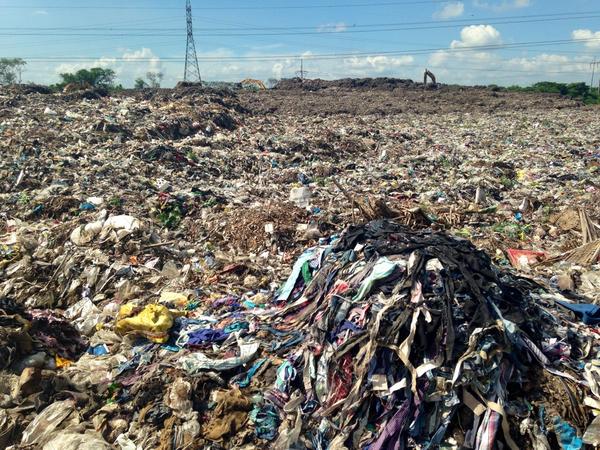Making sustainability more than just a trend
Climate Tech

By Dudi Cohen and Shira Goldblum
The fashion industry is one of the most resource-intensive industries in the world: it’s the second-highest water-consuming industry, it uses a great deal of energy to power a plethora of processes, and it utilizes a large number of plants.
Sustainable on-demand fashion is being demanded by fashion’s next generation of consumers, which requires a rapid transformation of traditional supply chain and production methods to reach net-zero goals. Digitization of fashion is a revolution that is long overdue and requires innovators!
Start-Up Nation Central, the Climate Solutions Prize, and Kornit Digital are calling on Israeli technologists, founders, and innovators of all kinds to apply their solutions to these challenges facing the fashion industry.
The Pain Points
Energy & water usage
Textile and apparel manufacturing is one of the major consumers of water and one of the largest sources of industrial effluent (wastewater).
Water is used throughout the life cycle of every textile, from growing cotton plants to processing polyester and viscose. On the printing end, massive amounts of water are used in inks and printing processes such as spinning, dyeing, and finishing the fabrics.
In fact, it takes about 700 gallons of water just to produce one cotton shirt!
Because numerous chemicals are involved in various textile processes such as pre-treatment, dyeing, printing, and finishing, textile wastewater needs to be adequately treated before being discharged into the environment, or it can cause substantial ecological harm.
Overproduction and underutilization (from knockoffs and fast fashion)
Global textile and garment manufacturing is quickly rising as a result of population growth and increased demand, but also due to the advent of fast fashion. In 2014, the average consumer purchased 60% more clothes than in 2000 – yet only kept each article for half as much time.
These planet-punishingly short lifespans lead to approximately 11 million tons of textile waste sent to landfills every year in the US alone.

Experts estimate that about 75% of the energy demand over the garment life cycle occurs prior to retail sale, which means that the mere manufacturing of any article already carries a substantial toll.
So while rejecting fast fashion may make environmentally-conscious consumers feel better about their individual impact, it’s imperative that we also work to optimize the supply chain upstream from the consumer to have any real impact on the industry.
High return rates (from online sales)
Another element contributing to wasted energy post-sale is the increasing return rate of items, in large part due to the significant spike in online orders over recent years (consumers sent back a staggering $761 billion of merchandise in 2021.) Even if a consumer is buying a responsibly-produced item from an eco-friendly retailer, if the item is undesirable for any reason (wrong size, color, fabric, print, etc) then it will lead to more waste – either in the return process or in its shortened lifespan.
Call for innovation / Technological solutions
This is where you come in! Kornit is sponsoring the Sustainable Fashion Tech Revolution Challenge as part of the Climate Solutions Prize, organized by Start-Up Nation Central, JNF Canada, KKL-JNF, and with the support of the Peres Center for Peace and Innovation.
Kornit is offering $40,000 to a winner with an MVP addressing one of their three specific challenges:

Challenge 1: Sizing Accuracy via Avatar
We want to eliminate the practice of “bracketing” in online shopping: ordering the same item in multiple sizes, trying them on at home, and returning the ones that don’t fit. So, we’re looking for a product (MVP) enabling customers to use tools they have at home (like a smartphone or webcam) to get their measurements quickly, easily, and – most importantly – accurately. The product should automatically create an avatar with the user’s accurate sizing, helping to reduce the rate of returns.
Challenge 2: Garment Encryption
There is a growing need to create authentication for physical garments, allowing users to trust that the item they have in hand is original and was sustainably produced. Encryption can help prevent over-production and counterfeiting of garments, cutting down on emissions and preventing fraudulent production claims. By providing the consumer with a secure and demonstrable “certification” tag, we hope to extend the lifespan of each item and add value to clothing by making clothes an asset using authentication.
Challenge 3: Ink Bottles
Kornit sells ink bottles globally. When disposed of, ink residue remains in them and currently requires specific disposal methods. The challenge is to create a circular, sustainable solution (MVP) for Kornit by designing smart packaging material with full end-of-life responsibility – compostable/biodegradable/recyclable – that reduces emissions to net-zero.
The challenges are open to all Israeli startups and researchers and more information about the requirements, the application process, and the timeline can be found on the Climate Solutions Page website.
Dudi Cohen is the Fashion-Tech Project Manager, focusing on virtual fashion and fashion in the Metaverse, at Kornit Digital
Shira Goldblum is Strategic Alliances Manager, focused on building alliances in sustainability, at Kornit Digital
 Tech Ecosystem
Tech Ecosystem Human Capital
Human Capital Focus Sector
Focus Sector Business Opportunities
Business Opportunities Investment in Israel
Investment in Israel Innovation Diplomacy
Innovation Diplomacy Leadership Circle
Leadership Circle Our Story
Our Story Management Team
Management Team Careers
Careers